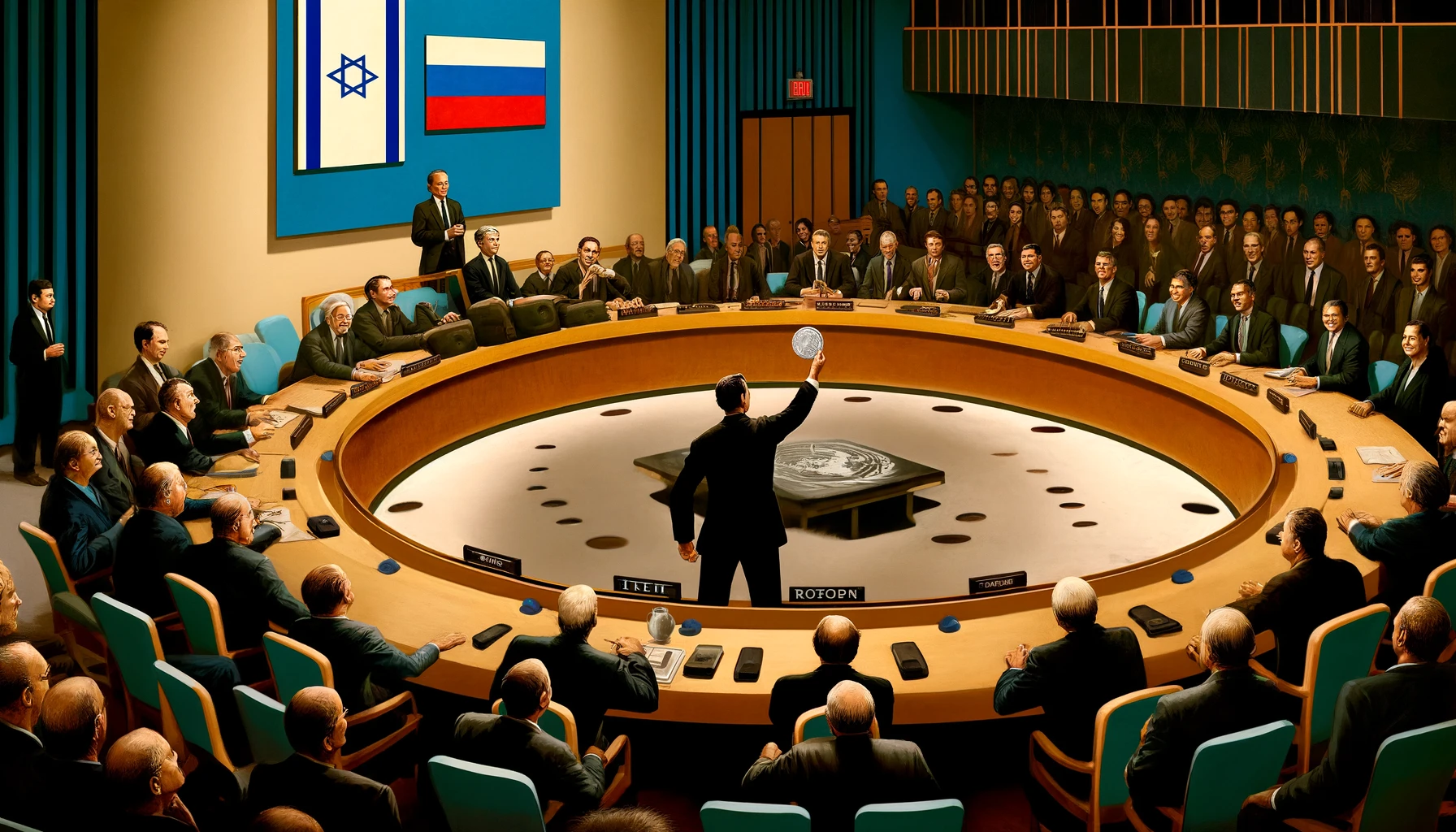In a satirical spin that perfectly captures the oftentimes arbitrary nature of international relations and global diplomacy, the United Nations is said to have adopted a revolutionary new method for determining the direction of its outrage: a coin toss. The latest resolution, humorously dubbed “Resolution 2024: Heads, Israel; Tails, Russia,” aims to streamline the process by which the international community decides whom to condemn for various global issues, ranging from territorial disputes to human rights violations.
“The world is a complex place, and frankly, we’re tired of the endless debates and diplomatic dithering,” explained a fictional UN spokesperson, Ivana Decidé. “With this new coin-toss system, we can allocate our outrage more efficiently, ensuring a fair and balanced distribution of condemnation.”
The move, while obviously a satirical jab at the sometimes seemingly random and self-serving nature of international politics, highlights the frustration many feel towards the inconsistent standards applied to different countries by global bodies and individual nations alike.
According to insiders, the inaugural toss was a nail-biting affair, with delegates from over 190 countries gathered in hushed anticipation as the Secretary-General flipped the specially minted UN coin. The outcome? Tails, signaling a momentary focus on Russia, much to the relief of some and the chagrin of others.
Critics of the coin-toss strategy have been quick to point out its absurdity, arguing that it reduces complex geopolitical issues to mere chance. “What’s next, rock-paper-scissors to decide on sanctions?” quipped one diplomat, who wished to remain anonymous for fear of being assigned bad luck in future tosses.
Supporters, however, argue that the method is as fair as any in the current geopolitical climate, where alliances and interests often dictate the direction and intensity of international outrage. “It’s transparent, it’s democratic, and it’s efficient,” argued Decidé, with a straight face. “Plus, it adds an element of suspense to international diplomacy that’s been sorely missing.”
In response to the decision, a new committee has been formed to oversee the coin-toss procedure, complete with a detailed rulebook specifying the type of coin to be used, the height from which it must be flipped, and the acceptable landing surfaces. Rumors are circulating about a potential Olympic-style event, where countries can compete in categories such as “Most Artistic Flip” and “Best Reaction to Loss.”
As the world watches this satirical scenario unfold, it serves as a poignant reminder of the often arbitrary nature of international politics. While the coin-toss system may be a fictional creation, it underscores a real and pressing need for a more consistent, principled approach to addressing global issues—one that relies on justice and fairness rather than the luck of the draw.
